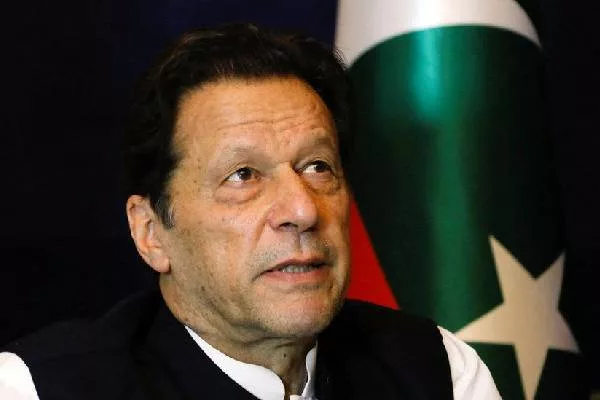The US State Department’s reported urging of the Pakistani government to remove Prime Minister Imran Khan from his position due to his neutral stance on Russia’s invasion of Ukraine has created ripples in Pakistan’s political landscape. This revelation, documented in a report by The Intercept, sheds light on the intricate interplay between international geopolitics and domestic governance.
In a meeting that transpired on March 7 last year, the Pakistani ambassador to the United States and two State Department officials discussed the matter, igniting discussions, debates, and speculations within Pakistan for over a year.
The aftermath of this meeting saw the emergence of a no-confidence motion against Imran Khan’s leadership in Parliament, a motion that was rooted in the concerns raised during the State Department meeting. The result was a subsequent power struggle as Khan, the chief of the Pakistan Tehreek-e-Insaf (PTI) party, and his supporters engaged in a tussle against both military influence and its civilian collaborators.
The Intercept’s report cites a document titled “Secret,” obtained by the publication, which includes details of the meeting between US State Department officials and the Pakistani ambassador to the US. The document highlights the US’s reservations about Imran Khan’s foreign policy stance on the Ukraine conflict. Notably, the meeting occurred a mere two weeks after Russia’s invasion of Ukraine, a period marked by heightened global tensions.
The report underscores the complexity of the situation by revealing a dialogue involving the US State Department and an official named Lu. During a Senate Foreign Relations Committee hearing on March 2, Lu fielded questions regarding the neutrality of countries like India, Sri Lanka, and Pakistan in the Ukraine conflict. Lu mentioned Imran Khan’s recent visit to Moscow and the challenges of engaging with the Prime Minister amidst this context.
Imran Khan’s responses to international pressure have also been significant. While addressing a rally, Khan openly countered European calls for Pakistan to support Ukraine. He expressed Pakistan’s foreign policy principle of maintaining friendships with various nations, asserting that the country is not beholden to any alliance.
This scenario ultimately led to the issue of a no-confidence vote being raised by Lu, reflecting the far-reaching consequences of international opinions on Pakistan’s domestic politics. The State Department’s stance and Khan’s responses highlighted the intricate balancing act Pakistan faces on the global stage while navigating its internal dynamics.
